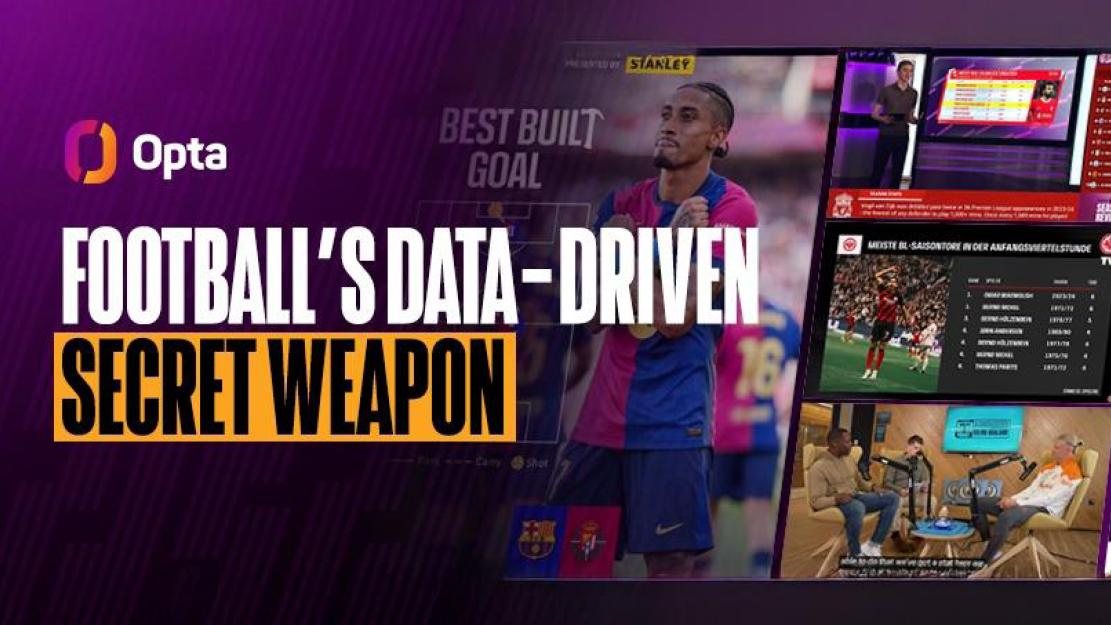Arianna Criscione, Director of Women’s Football at N3XT SPORTS, is speaking at the FUTURE OF FOOTBALL BUSINESS Conference presented by keyper on 1 September. Beforehand, she gives insights into the topic of women’s football, her vision for it and the future of it.
You were a professional football player; your last club was PSG where you, at the same time, worked in the business department of the club. Now you are the Director of Women’s Football at N3XT Sports. What are your projects and tasks right now?
I use my past experience and creativity to help football stakeholders to build sustainable and accelerated blueprints that raise the women’s game. I am currently working with a sponsor that is attempting to develop their audience reach through women’s sport and they understand the importance of working with women’s teams and fans to create an authentic voice and not to assume what they want. My tasks vary quite a bit from a direct work level. I prospect the market, reach out to them, close deals on projects and then implement them. In order to continue building my knowledge of the game and to stay up to date with the industry, I’m constantly chatting with colleagues in the game and in other sectors to see where we can work together and what lessons I can take from others that can be implemented into the women’s game.
You gained experience in professional sports and business; you saw a lot. What is your vision for women’s football?
I would like to see women’s football develop around the world. We are seeing huge growth in certain markets and then questioning why it’s not the same in other places or assume it is. We just saw an absolutely incredible Women’s Euro’s with record-shattering attendances, sponsors jumping in, and a lot of other positive aspects. But there were also tournaments in four other confederations at the same time, which also demonstrated positive developments in their own right but nowhere near that of the Euros. I want us to make the same push and development in those regions as well as the regions, countries, clubs and teams that are already rising. The game needs a competitive product and if the game is only growing in one place that won’t be possible.
You are speaking at the FUTURE OF FOOTBALL BUSINESS Conference. We have intentionally not opened up any tracks specifically on women’s football but want to include it as part of the game in as many different tracks as possible. Why is women’s football often seen as a different sport?
Women’s football is seen as a different sport because it’s called women’s football and men’s football is just called “football”. Right there we already designate it as something different and a part from the norm of football. This already changes the psychological response from people to differentiate them and assumes women’s football is a subsidiary to its male counterpart and therefore needs to be distinguished. What we’re seeing in the success of that club and international competitions are sharing at this time, particularly by the way some leagues are generating visibility via major broadcasters, is proof that the women’s game is a strong value proposition for clubs, federations, and sponsors.
You are part of a panel about strategy in football. Long-term planning in football is tough but extremely important to evolve. Is the lack of strategic planning also a problem in women’s departments of football clubs?
Considering sport is a top-down business and it is usually the top that implements strategies or requests them, I think you’ve answered your own question. The difference I believe that comes into play is that even if there is not a direct strategy in the women’s game, the women’s department (if there is one), understands that the game is at a fragile make-or-break moment and then need to communicate where they want to go and how they are going to get there if their are going to develop financially, fan engagement, ticket sales, etc.
More and more football clubs are beginning to build women’s teams and departments. How can this process be managed successfully?
I think the key word here is build. Building fundamentally is starting at the bottom and adding piece by piece on the specification (blueprint) of what that club/ organization needs. I don’t think taking people from one part of the business and then putting them in another part is the best way to go about it. There needs to be a strategy to bring in the best people for the roles, which at times could surely come internally. But to take people already employed and add to their workload just to now say you have a women’s department is not the way to go. How an organization goes about building an infrastructure tailored to the women’s game relies on its understanding of women’s football and its value to the business.
Is it useful to have separate departments for Women’s and Men’s Football in a football club? Or what do you think is the best structure to be successful?
There is no one size, cookie cutter approach to developing women’s football. It all comes down to the club’s strategy and goals. For some clubs sharing resources makes sense and works because the whole club has bought into the idea and it’s a football club with multiple teams. For other clubs separate departments are vital for the sustainability of the women’s team.
We have seen an amazing Women’s Euro. Do you think the domestic leagues across Europe can benefit from that?
I can’t say enough good things about the Women’s Euros. UEFA, The FA and everyone else involved did an absolutely tremendous job. I don’t know how much this will have a trickle-down effect outside the host country especially when the host country won. We have already seen a 15% increase in the number of Women’s Super League (WSL) season ticket sales and a 55% increase in girls booked to summer football camp. But so far I haven’t seen any numbers showing the same in France or Italy, for example. France also had an uptake in girls participating in football right after the FIFA 2019 Women’s World Cup. This is why owning strategies across the board is so vital. Strategies that make sense to your organization, club, league, etc. There are a lot of learnings to be taken from the tournament that the rest of Europe can look at but I don’t believe the rest of Europe will have the same visibility and promotion of women’s football that England has and will have.
What is the one thing Women’s Football needs right now?
Continued support and visibility not just around big events like the Euros, World Cup or Champions League. The leagues need regular support and not just the top league but local leagues, too. We need to make sure that we continue focusing and developing grassroots football. A lot of conversations are focused on the top end of the pyramid but, if the other clubs and grassroots teams aren’t taken into consideration, there won’t be enough future players to even become professional.
And then, what is that next step?
Every step is different and depends where you are on your journey. Some people are still at the starting line waiting to start the race. Others are already in full sprint. No matter where you are in the journey, the key elements are to start and to make sure you finish. Every athlete knows before you compete you have to prepare. No one walks up to the start line in a major competition never having raced a single meet before, yet we see a lot of clubs and organizations doing just that. They are trying to run in the Olympics, never having run a qualifier, never having prepared correctly and then blaming their shoes for not winning. You can’t blame the players, coaches, women’s game or any other scapegoat at the club if you never prepared to start with.


 Upgrade to Premium Now
Upgrade to Premium Now






